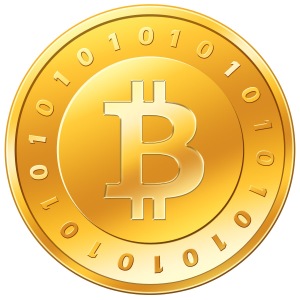Is Bitcoin is a currency? Money is, after all, a sort of collective fiction. What money we choose to trust says much about how we see the world.
Above the simplest exchanges, most money has limited use. Gold, the most storied historical currency, is almost only good for jewelry and limited industrial applications, it really doesn’t have any kind of real world value. To it fans, this relative uselessness is a value in itself; since the gold reserves cannot be consumed and it isn’t like money, where governments can print all the currency they want.
Paper is, of course, the proxy for the government issuing the money. How much we trust the government’s ability to collect taxes, pay debts and keep our countries banking system from crumbling is the collective fiction that gives a country’s money value.
Paper or gold, money is worth something if the people continue to believe in it. And right now, an increasing number of people believe in the Bitcoin and similar, emerging stateless algorithm-based cryptocurrencies.
In place of believing in a central bank, or its owner, a powerful nation state, what do we believe in if we believe in Bitcoin? We believe in a borderless world of hyper-empowered individuals, alive mostly through the World Wide Web. Bitcoin is designed with the ideals of the contemporary cyber movement in mind: decentralization, peer-to-peer and cryptography. Bitcoin is gold on steroids, designed for a society that lives through the Internet.
The language we use around money is telling. Words like ‘currency,’ ‘tender,’ ‘exchange’ bespeaks a world of social interaction and trust. In the meantime, informal terms like, ‘loot,’ ‘moola,’ and even ‘dough’ show our problematic feelings about money. So far Bitcoin is spoken of in extreme terms, as a threat, or a bubble, or the empowerment of drug dealers. It is not surprising conservative governments, such as China and Norway think it lacks the characteristics of a real currency.
Many financial regulators don’t want to view it as a currency. Economist David Yermack released a study stating that Bitcoin behaves more like a “speculative investment than a currency” (Kennedy). Bitcoin lacks many characteristics associated with modern currencies; it can’t be deposited into a bank account, it can’t be used for auto loans or mortgages and most importantly it doesn’t exist in a physical form of coins or bills. Regardless of this fact people are feverishly adopting Bitcoin, for instance; a Texas Senate candidate is accepting Bitcoin campaign donations, and Overstock.com customers can use the cryptocurrency to buy engagement rings. It’s a profitable investment. Created in 2008, Bitcoin’s value took off last year, leaping about 60-fold in the past 12 months to over $900.00.
No one could have ever predicted Bitcoin’s increased market value. And, no one can accurately predict its value in the coming days, months or years. The very idea that you can’t predict Bitcoin’s market value, that an algorithm not statistics influences its market value differs from our current money system that is built around Harold Innis’s idea of the predictability in the pricing system.
Bitcoin challenges the rigid hierarchy of the banking system, which has become increasingly out of touch with the social realities of our time. This brings to mind Harold Innis’s ponderings about the price system and capitalism where trading from the colonial frontiers in 1800 and 1900s shifted society towards Capitalism. The old fiction of centralized bank is being replaced with the idea of the almighty tech, where the World Wide Web rules and most transactions happen with a physical trace in the three-dimensional world. Easily transferable in ones and zeros, Bitcoin is storage of value for a virtual society. As a payment system, it’s a temporal store of money that can be easily sent across the globe securely and speedily without counterparty risk. No matter the price of Bitcoin, these benefits will always give it purpose
Money is money because we believe in it. Considering Bitcoin to be money is no less bizarre than believing in banknotes from centralized banks that have failed nations many times over. However, The Economist might be right: “all currencies involve some measure of consensual hallucination, but Bitcoin… involves more than most.”
Further Reading:
“Bitcoin under Pressure.” The Economist (US) 30 Nov. 2013. Print
Innis, Harold. “The Penetrative Powers of the Price System.” The Canadian Journal of Economics and Political Science 4.3 (1938): 299-319. Print.
Kennedy, Simon. “Bitcoin More Speculative Than Real Currency, Study Finds.” Bloomberg Business Week. N.p., 23 Dec. 2013. Web.
